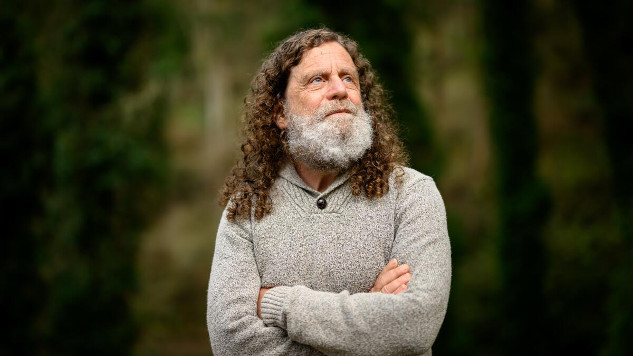
Robert Sapolsky is a professor of biology and neurology at Stanford University, and the author of best-selling books.
The prevailing belief in free will, deeply embedded in our psyche, convinces us that we are the architects of our decisions and, consequently, bearers of the outcomes. This notion instills a sense of autonomy, suggesting that our choices are ours alone. However, this perception faces significant challenges when viewed through determinism. The deterministic perspective posits that our choices are far from self-determined; instead, they are intricately pre-scripted by a complex interplay of factors beyond our immediate control.
From the genetic codes we inherit at birth to the environment that molds us, myriad predetermined elements stealthily orchestrate our every decision. This deterministic view not only questions the very existence of free will but also radically alters our understanding of human agency. It suggests that what we perceive as autonomous choices are, in fact, the outcomes of pre-existing conditions and influences.
The Story of Phineas Gage
The story of Phineas Gage is a seminal case in the study of neuroscience and psychology, offering profound insights into the relationship between brain function and personality. In the mid-19th century, Gage, a railroad construction foreman, experienced a catastrophic accident where a large iron rod pierced through his skull, inflicting severe damage to his frontal lobes. Remarkably, he survived but underwent a dramatic personality transformation. Before the accident, Gage was known for his responsible and amiable character; however, post-injury, he became impulsive, irritable, and inconsistent—traits starkly contrasting his former self.
This drastic change in behavior following a physical alteration to his brain provides compelling evidence of the biological basis of personality and decision-making. Gage's story is not just a medical curiosity but a cornerstone example in neuroscience, highlighting how our brain's structure and health profoundly influence our behavior and choices. This incident is pivotal in supporting Robert Sapolsky's deterministic viewpoint, underscoring how physical changes in the brain can lead to predetermined behavioral outcomes.
Role of Environment and Culture
The influence of environment and culture on human behavior extends beyond biology, playing a critical role in shaping our actions and decisions. Sapolsky's argument brings to light how our surroundings and the cultural milieu in which we grow profoundly impact our development. He emphasizes that socio-economic conditions, often overlooked, are instrumental in influencing brain development and subsequent behavior patterns from a very young age.
For instance, children raised in affluent environments tend to have access to a broader array of resources and stimuli, which can significantly affect their cognitive and emotional growth. Conversely, those from less privileged backgrounds may face challenges that hinder their development, such as limited access to educational opportunities or exposure to stressors like poverty and instability. This environmental shaping goes hand in hand with cultural determinism, where the norms, values, and beliefs ingrained in us by society play a pivotal role in guiding our decisions.
These subtle and unacknowledged cultural factors dictate what we consider standard, acceptable, or desirable, thus channeling our choices in ways we might not consciously recognize. Together, environment and culture create a tapestry of influences that mold our actions, challenging the notion of free will by suggesting that our decisions are as much a product of external conditioning as they are of internal deliberation.
Legal and Ethical Implications
Adopting a deterministic perspective significantly challenges and potentially revolutionizes our legal and ethical systems. The core question is how to justly administer punishment and reward if individuals' actions are the result of predetermined factors. This difficulty calls into question the traditionally conceived foundations of justice and morality. Suppose our actions are predestined by a complex interplay of genetic, environmental, and cultural influences. In that case, the conventional basis for assigning guilt or merit becomes problematic.
Robert Sapolsky's proposition of a "quarantine model" for handling individuals who pose a danger to society is a radical departure from punitive justice models. Instead of punishing individuals for actions they were "predestined" to commit, this approach suggests a more empathetic understanding of the underlying causes of their behavior. Such a model would focus on containment and rehabilitation rather than retribution, aligning with a deterministic view that recognizes the myriad factors influencing human behavior.
This shift could pave the way for more humane and effective societal structures, where understanding and addressing the root causes of behaviors become central to our legal and ethical frameworks. This approach could transform how we view responsibility and accountability, prompting a profound reevaluation of how justice is conceived and administered in a world where free will is seen as an illusion.
Living Without Belief in Free Will
Adopting a deterministic view poses practical and philosophical challenges—the difficulty in reconciling this perspective with everyday life. Despite understanding the deterministic nature of actions, humans often attribute intent and meaning to their choices. This paradox highlights the struggle between intellectual understanding and innate human tendencies.
The idea that we need more control over our actions doesn't negate the importance of ethical behavior. Understanding the roots of human actions can lead to a more empathetic and just society. He draws parallels with religious beliefs, noting that whether one believes in God or not, or in free will or determinism, the key lies in the thoughtful consideration of these beliefs and their implications for ethical living.
The Implications for Society
Accepting a deterministic perspective on human behavior carries far-reaching implications for society, particularly in how we conceive and structure pivotal institutions like the criminal justice system and the foundational idea of meritocracy. Suppose actions are predestined by an array of biological, environmental, and cultural factors rather than products of individual free will. In that case, this challenges the basis for assigning guilt, dispensing punishment, or allocating rewards.
By understanding the determinants behind behaviors, society could develop more compassionate and effective methods to deal with various social challenges, from crime to education and social inequality. This could lead to a more equitable society where individuals are not judged solely on their actions but are understood in the context of their circumstances and life experiences.
Such a perspective can reshape how we assign responsibility, encourage personal growth, and address social issues, fostering a more empathetic and inclusive community. In essence, embracing determinism could mean redefining the principles of fairness and justice in society, leading to significant changes in how we view and interact, guided by a deeper understanding of the complex tapestry of factors that influence human behavior.
Embracing Change Without Free Will
One of the most challenging aspects is the notion that even personal change is not a result of free will. External factors and past experiences influence changes in our preferences or beliefs. This view does not diminish the value or reality of change. Still, it reframes it as a response to evolving circumstances rather than a conscious choice.
Embracing a deterministic worldview is a philosophical exercise and a practical challenge. It requires a shift in how we perceive ourselves and others, moving away from judgment and towards understanding. Living consistently with this belief is challenging, as societal norms often contradict the deterministic perspective.
In this episode of the University of Chicago's Big Brains podcast, Robert Sapolsky argues that letting go of the illusion of free will could radically reshape our world. This podcast episode not only delves into the intriguing arguments presented by Robert Sapolsky but also challenges us to reconsider our understanding of human behavior and its implications for society. Whether unseen forces shape us or we possess the power of choice, this discussion opens the door to a deeper exploration of what it means to be human.
About the Author
 Robert Jennings is co-publisher of InnerSelf.com with his wife Marie T Russell. He attended the University of Florida, Southern Technical Institute, and the University of Central Florida with studies in real estate, urban development, finance, architectural engineering, and elementary education. He was a member of the US Marine Corps and The US Army having commanded a field artillery battery in Germany. He worked in real estate finance, construction and development for 25 years before starting InnerSelf.com in 1996.
Robert Jennings is co-publisher of InnerSelf.com with his wife Marie T Russell. He attended the University of Florida, Southern Technical Institute, and the University of Central Florida with studies in real estate, urban development, finance, architectural engineering, and elementary education. He was a member of the US Marine Corps and The US Army having commanded a field artillery battery in Germany. He worked in real estate finance, construction and development for 25 years before starting InnerSelf.com in 1996.
InnerSelf is dedicated to sharing information that allows people to make educated and insightful choices in their personal life, for the good of the commons, and for the well-being of the planet. InnerSelf Magazine is in its 30+year of publication in either print (1984-1995) or online as InnerSelf.com. Please support our work.
Creative Commons 4.0
This article is licensed under a Creative Commons Attribution-Share Alike 4.0 License. Attribute the author Robert Jennings, InnerSelf.com. Link back to the article This article originally appeared on InnerSelf.com
books_attitude













